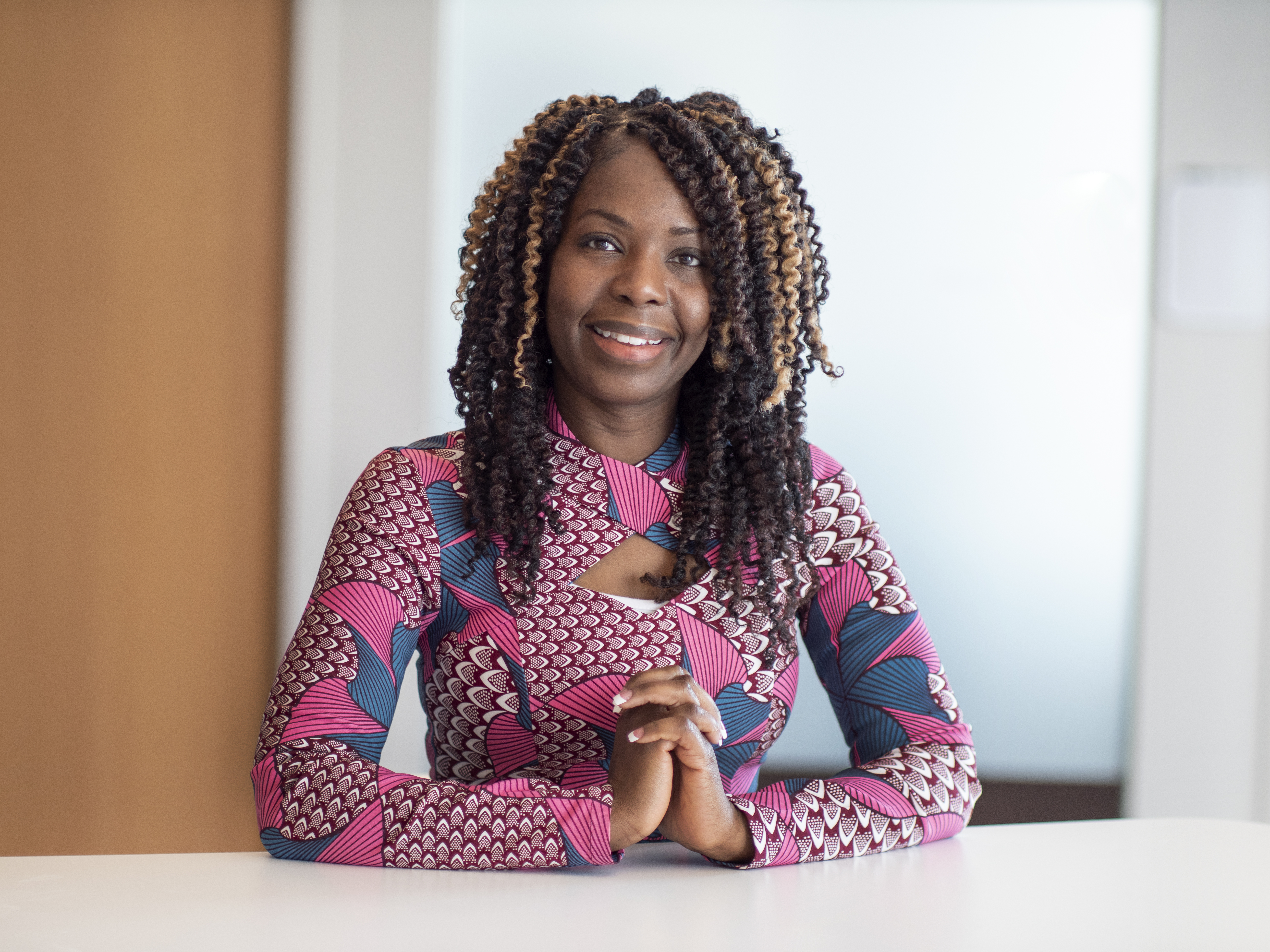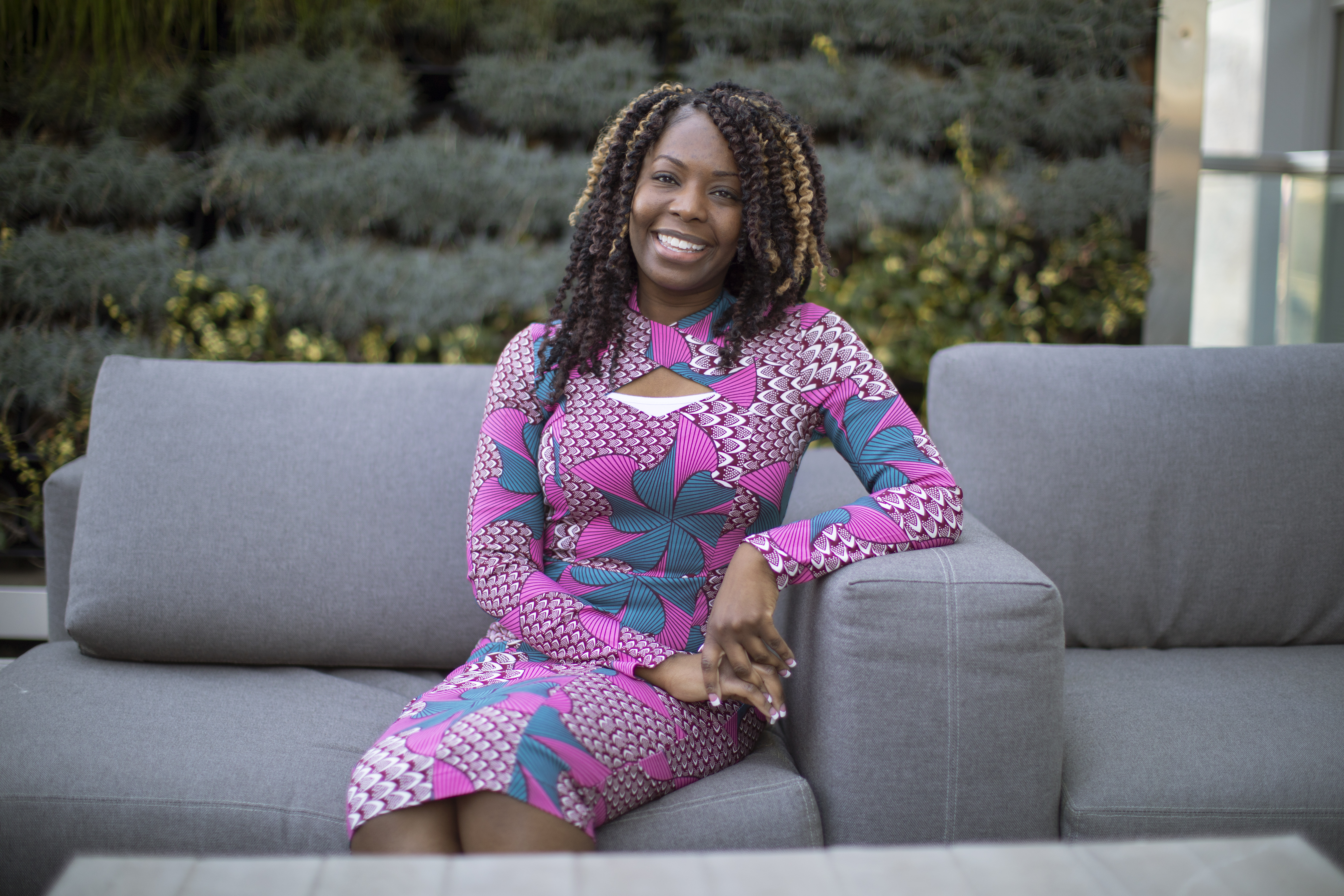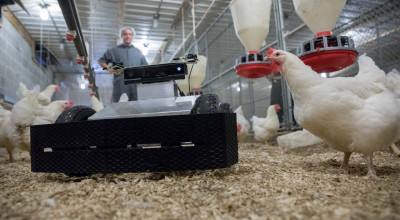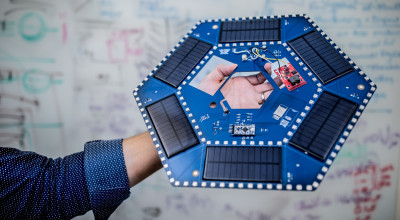
Insider Threat Program Analyst Chikita Sanders’ career path may not be a straight line, but all the experiences and people she met along the way granted her the skills to succeed.
Chikita was a biologist for eight years for the U.S. Army Corps of Engineers.
“In that role, there was also some aspects of project management, policy management, policy implementation,” said Chikita, “And so that gave me a yearning for something more.”
About five years ago, she applied for a program management role supporting the Chief of Staff for the U.S. Marshals Service. It was through this role that she was first introduced to the Insider Threat Program at the U.S. Marshals Service. With the combination of investigation, policy, security, and personnel, Chikita found this role incorporated all her passions, and she’s been excelling at it ever since.
The Georgia Tech Research Institute (GTRI) gained a passionate and motivated employee when Chikita joined the organization in October 2020. As a cleared defense contractor, the Georgia Institute of Technology (Georgia Tech) has authorization to receive and store classified and sensitive information. As such, Georgia Tech is required to establish and maintain a mature insider threat program. Chikita provides expertise and insight in the review and analysis of collected data to identify potential insider threat risks. Furthermore, she’s an active member of many of our inclusive communities, advocating for increased representation and creating conversations about being a minority in society.

Making an Impact Through Employee Resource Groups
Within GTRI, six employee resource groups (ERGs) foster a more inclusive work environment. ERGs at GTRI drive opportunities for employee engagement, professional development, education, training, recruitment, retention, and community outreach. Chikita took the initiative to join four of these groups, each with a unique objective.
- HER@GTRI exists for employees who identify as women.
- IDENTIFY@GTRI is a community of minorities or persons of color at GTRI.
- NextGen@GTRI brings together the younger generations of GTRI’s workforce.
- SERV@GTRI aims to connect, unite, and empower past and current U.S. military members and their families.
“[ERGs] were a great way to meet and connect with coworkers, especially onboarding during COVID-19 and having offices dispersed geographically,” explained Chikita.
In these groups, members connect and bond as they share their lived experiences. Each community works diligently to cultivate a safe space for openness and help educate the entire organization on specific causes. To do so, these groups need reliable and robust leadership teams. Chikita serves as IDENTIFY@GTRI’s associate chair for special initiatives.
“In my particular role, I try to have a heartbeat to what's going on in society,” said Chikita.
As a chair, Chikita is responsible for seeing what members of the group want to discuss or learn more about. Along with paying attention to what is going on in society, IDENTIFY looks at the more granular details and needs of the Georgia Tech campus and GTRI’s offices. Paying attention to those factors informs the leadership team and helps them plan dynamic and engaging events.
Within the past year, IDENTIFY@GTRI hosted a panel featuring alumni from Historically Black Colleges and Universities (HBCUs), invited one of the first Black women to graduate from Georgia Tech to speak about her life, and organized multiple book club discussions. For Black History Month, IDENTIFY@GTRI selected "Health and Wellness" as its theme. They have created a space for casual virtual meet and greets to gather, talk, share, and listen.
Drawing Strength from Mentors
Black History Month provides an opportunity to start new conversations. In one avenue, we choose to celebrate and share the stories of minorities, African Americans, and Africans in America. Through that commiseration, allies gather in the ongoing struggle and fight for justice and equity. Chikita reflects and shares details about some of her personal mentors and a notable scientist who impacted her.
A former president of Florida A&M University, Frederick Humphries, inspired Chikita early in her undergraduate education. Florida A&M University, where Chikita received her bachelor’s degree, is the highest-ranked public HBCU in the U.S., according to News & World Report's list of national public universities.
When Humphries addressed incoming scientists, including Chikita, he let them know that professors would push them. Florida A&M would require more of its students to unlock their potential. Graduates were ensured they could compete on any stage.
“And he was absolutely right,” said Chikita. “I don't think you will meet too many Rattlers that don't feel that same way. We can compete on any stage.”
Chikita also commended her academic advisor, Edna Cofield, who was instrumental in filling the world with so many STEM professionals.
Beyond her personal mentors, Chikita also reflected on the American engineer, physician, and former NASA astronaut, Mae Jemison.
“I pull Mae as a distant mentor,” said Chikita. “She didn't let past achievements stop her from navigating and doing something different. And I think sometimes we get caught up in the thought, ‘this is what I am,’ but you could also excel at something else.”
One of the only African American students in her class, Mae graduated in 1977 with a Bachelor of Science in chemical engineering and a Bachelor of Arts in African and African-American studies. She attended medical school, joined the Peace Corps, and intended to open a private practice. However, after watching Sally Ride become the first American woman in space, Mae decided to apply to the astronaut program at NASA. In 1992, she became the first African American woman in space.
Mae’s story especially resonates with Chikita, who was a successful biologist for eight years before pivoting to working in Federal Law Enforcement and now helping to manage the insider threat program at GTRI. Thanks to her background, Chikita has a foundational understanding of the work researchers conduct at Georgia Tech and GTRI. It enables her to cultivate partnerships and open communication across the organization.
“Through strong working partnerships with agencies throughout the intelligence community we are able to obtain critical information which drives our planning processes and develops protection plans for Georgia Tech and for GTRI's critical research,” said Chikita. “My background in STEM has been instrumental, to the gains that I've had since I've been here.”
Representation at the Table
While there have been specific mentors who inspired Chikita, she still recognizes an opportunity for increased representation.
“As a minority, both a woman and a person that identifies as African American, representation is key,” said Chikita. “And it doesn't mean I’m asking for the bar or standard to be lowered; simply a seat at the table – in short equity.”
When Chikita is given an opportunity, she aims to exceed expectations – something her parents instilled in both her and her sister throughout childhood. She understands that her success or failure may impact another person that looks like her occupying this role, and she hopes she is not the last African American or woman given that seat.

Chikita volunteers and represents GTRI at conferences. While in those spaces, sometimes she one of maybe three or four other women and even fewer minority women.
“This experience is not unique to me; many minorities share this experience,” emphasized Chikita.
Chikita is naturally an introvert. However, at conferences, she pushes herself to speak out and leave a positive mark on the people she encounters because she is aware of the weight of representation. While this may sound like a lot of pressure that’s placed upon Chikita’s shoulders, she views it as an honor.
“There have been so many people that have gone before me and countless sacrifices have been made,” said Chikita. “Not just by my parents, but by those I call the elders. I must honor those sacrifices. I can be discouraged, but only for a moment because I can’t give up. I haven't earned that right. There are people still waiting for their opportunity. So, no, I don’t see it as a burden, it’s my honor.”
Science as a Foundation and Link to the Future
Chikita is the first to admit that you will not find her career path on any formalized chart. However, it is the totality of her academic and professional experiences that has led her to GTRI's Research Security department.
When asked, what’s next for she stated, “Always learning and growing in the insider threat and risk management fields.”
Ultimately, Chikita aspires to join a C-Suite as a Chief Security Officer.
Writer: Katrina Heitz
Photos: Christopher Moore
GTRI Communications
Georgia Tech Research Institute
Atlanta, Georgia USA

The Georgia Tech Research Institute (GTRI) is the nonprofit, applied research division of the Georgia Institute of Technology (Georgia Tech). Founded in 1934 as the Engineering Experiment Station, GTRI has grown to more than 2,800 employees, supporting eight laboratories in over 20 locations around the country and performing more than $700 million of problem-solving research annually for government and industry. GTRI's renowned researchers combine science, engineering, economics, policy, and technical expertise to solve complex problems for the U.S. federal government, state, and industry.





